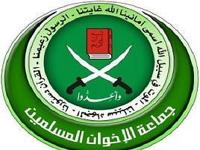
As results come in for parliamentary elections held on Sunday, the Muslim Brotherhood faces being virtually wiped out from parliament.
By contrast, the ruling party of President Hosni Mubarak, the National Democratic Party (NDP), is in danger of winning an embarrassingly emphatic victory – further undermining the credibility of a system widely attacked by the opposition and human rights activists.
The Brotherhood is banned from politics, so the movement fields independent candidates. That uneasy compromise could also collapse, as the NDP challenges it in court.
It means that even the handful of Brotherhood MPs likely to be elected could be disqualified once the new parliament takes office.
“They are destroying any hope of the people for change by peaceful means,” warned the spokesman for the Muslim Brotherhood, Essam El-Erian.
“It is clear this election was rigged,” he claimed. “Any results are not real.”
The Brotherhood says its supporters were simply prevented from voting in many areas.
Evidence
There was clear evidence of this practice in one prolonged standoff in a district of Alexandria, where Muslim Brotherhood followers said they were refused entry to a polling station.
In many other areas there have been accusations of ballotbox stuffing, vote buying, and polling stations closed during polling hours.
Evidence
There was clear evidence of this practice in one prolonged standoff in a district of Alexandria, where Muslim Brotherhood followers said they were refused entry to a polling station.
In many other areas there have been accusations of ballotbox stuffing, vote buying, and polling stations closed during polling hours.
Five years ago, as the Bush administration pushed for reform in the Middle East, the Muslim Brotherhood shocked the Egyptian government by winning 88 seats in parliamentary elections.
The pressure from Washington on the Egyptian government also resulted in Mr Mubarak standing for a contested presidential election for the first time in nearly three decades.
This time, the Egyptian government seems to feel under less pressure over its human rights record.
It has felt able, for example, to refuse visas for staff from the pro-democracy organisation, the National Democracy Institute, even though it is funded by the US government.
Independent monitoring has been curtailed, with judges no longer stationed at every polling station.
At polling stations many of the electoral abuses were quite blatant. The first one I arrived at, we quickly saw free food being distributed, with the strong suspicion that it came from the candidate for the ruling party.
An opposition supporter came to us to say that he had seen money being paid from the ruling party in exchange for votes.
Trucks with loudspeakers blared out support for the governing party, in clear violation of election rules.
Similar reports came from across Egypt.
Suspected deal
Many people suspect a deal between the ruling party and the powerful businessman Sayyid al-Badawi, who has taken over leadership of the secular opposition New Wafd party.
Under the suspected arrangement, the ruling party candidates would try to enable New Wafd candidates to win up to 50 seats in order to maintain a credible, and this time secular, opposition presence in parliament.
The problem for the government is that it cannot control its own supporters. In a number of constituencies, the ruling party fielded multiple candidates, eager for the privileges of being an MP, making any deal with the opposition difficult to put into practice.
By contrast the government and state-run media have stressed how smoothly the election went. Even sceptics agreed that there was less violence than in the 2005 contest.
According to a press release from the government-run Cairo Press: “Justice Sameh Al-Kashef, the High Elections Commission spokesperson, confirmed that the election had gone smoothly in the majority of locations and polling stations, with the exception of some scattered incidents of violence and fraud in which cases the HEC took appropriate steps to intervene and address problems arising.”
By contrast, Joe Stork of Human Rights Watch, who is in Egypt for the elections, concluded: “The repeated exclusion of opposition representatives and independent monitors from polling stations, along with reports of violence and fraud, suggest that citizens were not able to partake in free elections.”
Whatever precisely happened: the Egyptian government is likely to enjoy the support of an even more compliant parliament, as it prepares for presidential elections next year.
The reaction of most Egyptians to the whole process is a cynical shrug.

Leave a Reply
You must be logged in to post a comment.